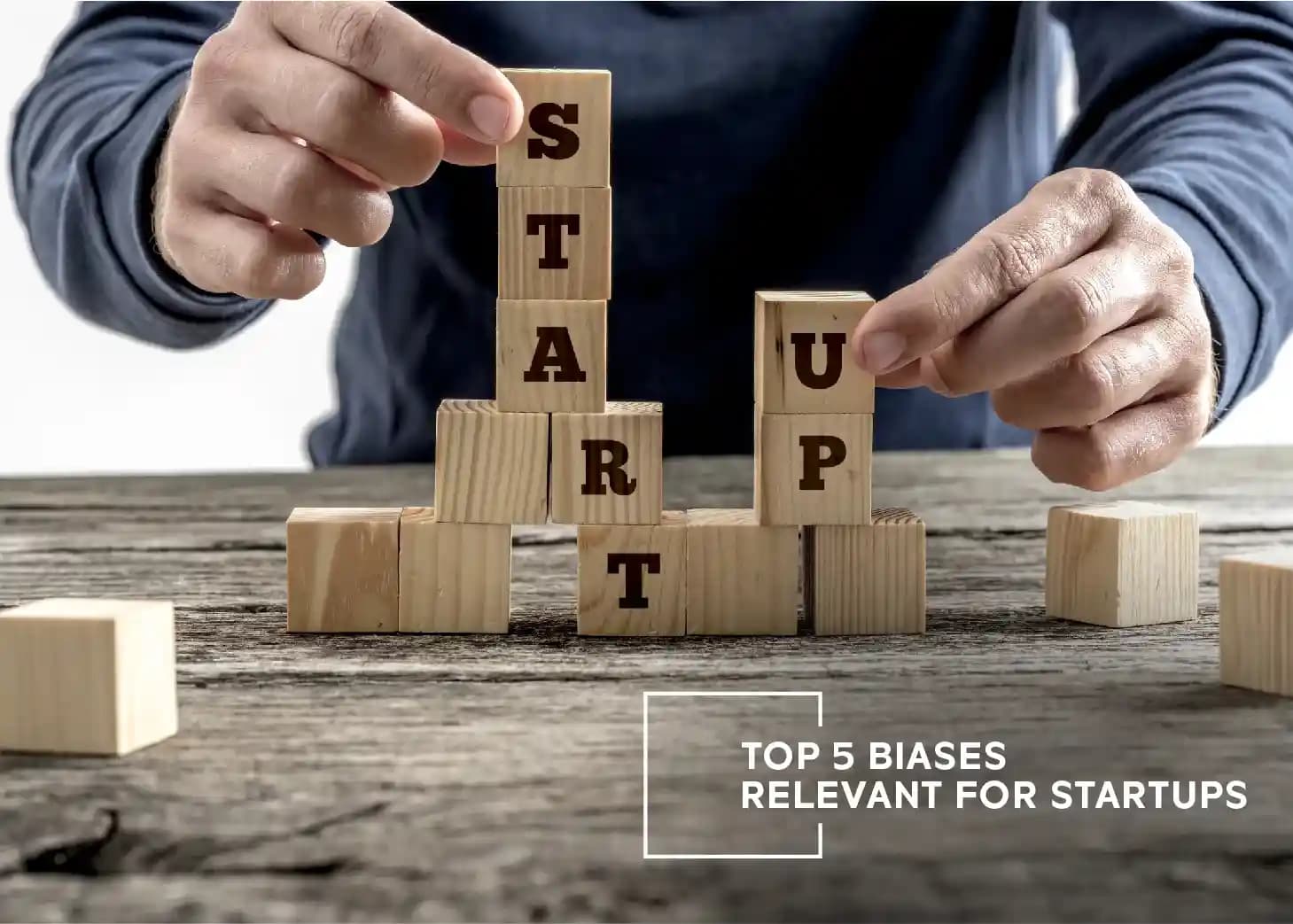Entrepreneurship comes with a set of challenges and attitudes, many of which have origin in unconscious mental processes and consequently shape our decision-making and behaviour. In order to make better business decisions, it is important to be able to recognize biases, or cognitive errors, that could potentially hinder entrepreneurial projects. Every entrepreneur can get distracted from time to time by a false belief about themselves, their abilities or their business, and for this reason it is useful to challenge yourself with a mini checklist of usual entrepreneurial biases.
1. Overconfidence bias. Probably one of the most relevant biases related to entrepreneurs is overconfidence, which can be a problem if the entrepreneur is in love with their business too much not to see the full picture and potential mistakes clearly. On the other hand, entrepreneurs without confidence might never start a company. When it comes to entrepreneurial confidence, balance is key.
2. Confirmation bias. If you are continuously looking for confirmation of your opinions and get in contact only with people who echo your beliefs about, for instance, market trends, commercialization strategy, quality of your product/service, you might be caught in the confirmation bias loop. The remedy is easy - stop ignoring the opposing opinions, try to understand and learn from them.
3. Sunk cost fallacy. Another common bias, especially for early stage projects, is related to sunk cost. This phenomenon is similar to gambling – recovering the lost amount rarely happens by wasting even more money on gamble. Just because you have spent a lot of money (and time!) on a project that is still not working out, that cannot be the only reason to continue. Carefully reconsider if the project is worth the additional investment, or it is better to stop it.
4. Endowment effect. When people own something, they have the tendency to think the item is worth more just because it is theirs. This is particularly important in the context of startup valuations, which are often incredibly unreasonable, just because of the endowment effect. Next time when you demand something from your potential clients or investors, ask yourself if your track record objectively justifies the request.
5. Availability bias. Just because the media often report about unicorns, it does not mean that billion-dollar companies are a frequent thing. Actually, there are only about 500 unicorns in the global market. That was an example of availability bias, which tampers with our interpretation of the likelihood of outcomes based on what we can easily remember. In order to avoid this cognitive mistake, several perspectives need to be consulted before making a decision.
It is important to remember that biases are unconsciously triggered, and this is why it is more difficult to spot them and acknowledge their influence on our decision making. Ironically, it is easier to identify biases in other people than in ourselves, however the first step to reducing their impact is recognizing them.
This article was written by Ana Barjasic, founder of Connectology, an international boutique entrepreneurship and investment agency, with focus on access to finance, investment readiness and behavioural science. Connectology is an Official Knowledge Partner of the Annual Investment Meeting.
